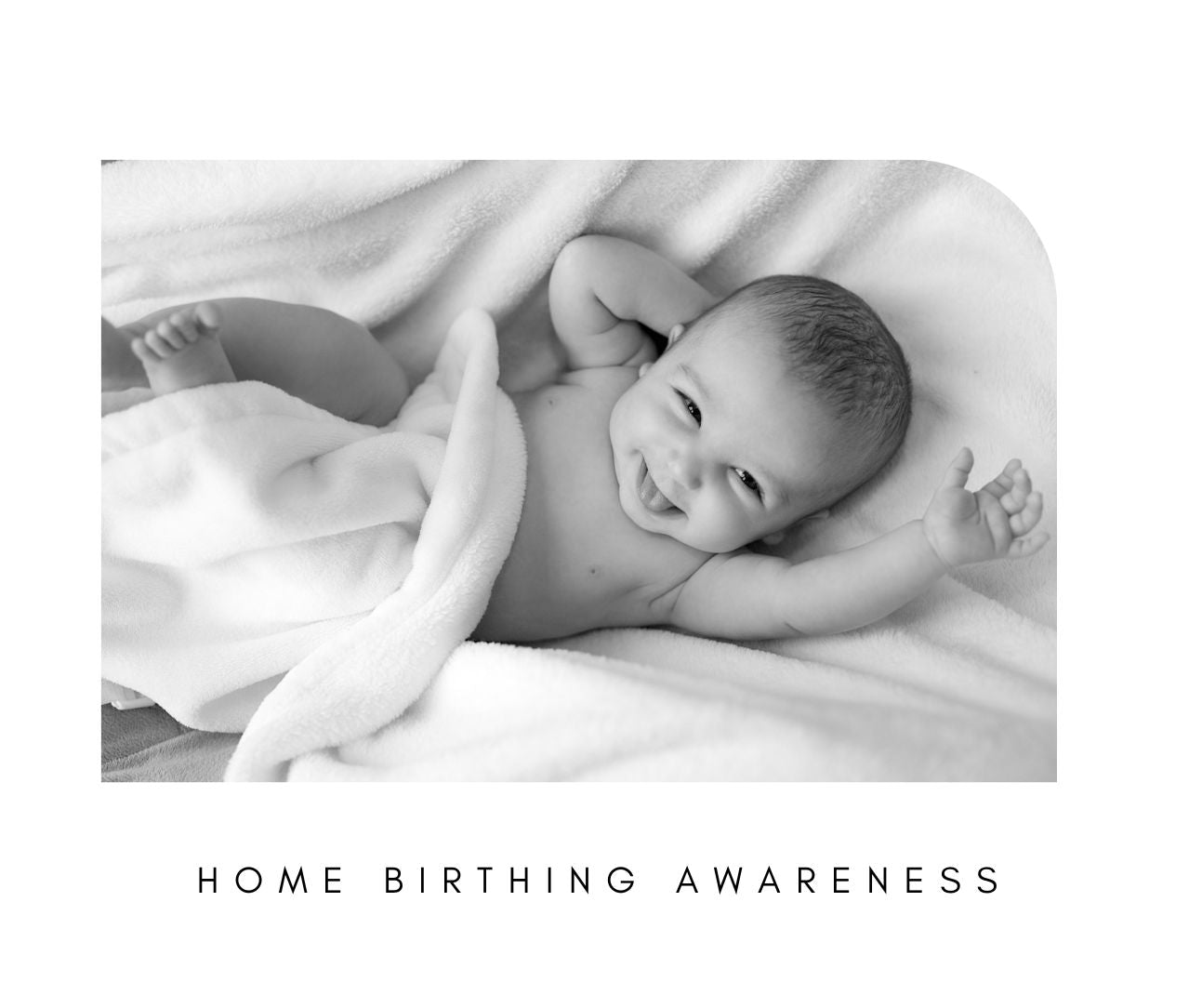The Joy and Challenges of Bringing Your New Baby Home

Baby Homecoming
Bringing your new baby home is a momentous occasion filled with joy, nerves, and a flurry of activity. For new mothers, expecting mothers, and new parents, this transition marks the beginning of an exciting yet demanding chapter in life. Whether you're a first-time parent or adding another bundle of joy to the family, there are always new things to learn and prepare for. In this blog post, we'll guide you through everything you need to know to make this transition as smooth and joyful as possible.
Preparing Your Home for Baby's Arrival
Before bringing your new baby home, it's crucial to ensure that your living environment is safe and welcoming. Start by baby-proofing your home. This means securing furniture to the walls, covering electrical outlets, and making sure that all hazardous materials are out of reach. These precautions can prevent accidents and create a safer environment for your baby.
Next, set up a comfortable nursery. Choose a crib that meets safety standards, arrange a changing table stocked with diapers and wipes, and include a cosy rocking chair for those late-night feedings. A well-organized nursery can make those first few weeks much easier.
Finally, consider setting up a breastfeeding or bottle-feeding station. Whether you choose to breastfeed or formula-feed, having a designated area can make feeding time more convenient. Stock it with necessary items like burp cloths, bottles, and a comfortable chair for you.
Stocking Up on Baby Essentials
Having all the necessary baby supplies ahead of time will save you from countless trips to the store. Start with the basics like diapers, wipes, and baby formula if you're not breastfeeding. These are items you'll go through quickly, and it's better to have more than you think you'll need.
Don’t forget about clothing. Babies grow rapidly, so it’s wise to have a variety of sizes on hand. Opt for soft, easy-to-remove outfits like onesies and sleepers. Also, make sure you have plenty of bibs and burp cloths, as babies tend to be messy eaters.
Additionally, consider investing in some baby gear like a stroller, car seat, and a baby carrier. These items will make outings much easier and ensure that your baby is safe and comfortable wherever you go.
Navigating the First Night
The first night at home with your new baby can be both thrilling and nerve-wracking. It's normal to feel overwhelmed, but having a plan can ease some of the tension. Start by setting up a nighttime routine. This can include a bath, a feeding, and some quiet time. Establishing a routine can help your baby adjust to their new environment.
Make sure your baby’s sleeping area is safe. Lay them down on their back in a crib without any loose bedding, pillows, or toys. This reduces the risk of Sudden Infant Death Syndrome (SIDS) and ensures a safer sleep environment.
Lastly, take turns with your partner to get some rest. The first night can be exhausting, and it's essential to share the responsibility. This way, both of you can get some much-needed sleep and be better prepared for the next day.
Feeding Your Newborn
Feeding is one of the most crucial aspects of newborn care. Whether you choose to breastfeed or formula-feed, it’s important to understand your baby’s needs. Newborns typically feed every 2-3 hours, so be prepared for frequent feedings.
If you're breastfeeding, ensure that your baby latches on correctly. A good latch is key to effective feeding and preventing nipple soreness. Don’t hesitate to seek help from a lactation consultant if you're facing difficulties.
For those who opt for formula feeding, make sure to follow the mixing instructions carefully. Sterilize bottles and nipples to ensure they are clean. Also, keep an eye on your baby’s cues to understand when they are full or still hungry.
Establishing Sleep Patterns
One of the biggest challenges new parents face is establishing healthy sleep patterns. Newborns sleep a lot, but often in short bursts. Creating a consistent sleep environment can help your baby learn to differentiate between night and day.
Keep nighttime interactions quiet and dimly lit. This helps signal to your baby that it's time to sleep. Conversely, keep daytime activities lively and bright to encourage wakefulness during the day.
Swaddling can also help. Many newborns find comfort in the snugness of a swaddle, which can mimic the feeling of being in the womb. Just make sure to follow safe swaddling guidelines to reduce the risk of hip dysplasia.
Bonding with Your Baby
Bonding with your new baby is essential for their emotional and physical development. Skin-to-skin contact is a great way to start. This can regulate your baby’s temperature, heart rate, and stress levels, and it helps you to bond on a deeper level.
Talk to your baby as much as possible. Even though they can't understand words yet, they can recognize your voice and find comfort in it. Singing, reading, or simply talking to them about your day can strengthen your bond.
Don’t underestimate the power of cuddling and holding your baby. Physical closeness fosters a sense of security and well-being, which is crucial for newborns.
Understanding Baby's Cues
Newborns communicate through a variety of cues. Understanding these signals can help you meet their needs more effectively. For instance, a crying baby may be hungry, tired, or need a diaper change. Paying close attention to the pitch and pattern of their cries can provide clues about what they need.
Look for non-verbal cues as well. Rooting (when a baby turns their head towards you and makes sucking motions) usually indicates hunger. Rubbing their eyes or yawning often means they are tired.
By learning to read these cues, you can respond more quickly and accurately, making both you and your baby more comfortable.
Seeking Support and Building a Network
Raising a newborn is not something you have to do alone. Building a support network can make the experience less overwhelming. Reach out to family and friends who have been through this before. Their advice and support can be invaluable.
Consider joining a new parents' group. These groups can provide a sense of community and offer practical tips and emotional support. Online forums and social media groups can also be good resources for connecting with other new parents.
Don’t hesitate to seek professional help if you need it. Paediatricians, lactation consultants, and postpartum doulas are there to support you and your baby.
Managing Postpartum Recovery
Your well-being is just as important as your baby’s. Postpartum recovery can be a challenging time, both physically and emotionally. Make sure to rest as much as possible. Your body has been through a significant ordeal, and it needs time to heal.
Stay hydrated and eat nutritious foods to aid in your recovery. Foods rich in iron, protein, and fibre can help you regain your strength. Don’t forget to take any prescribed medications, including prenatal vitamins, to support your health.
Lastly, be aware of your mental health. Postpartum depression is a common but serious condition that affects many new mothers. If you're feeling persistently sad, anxious, or overwhelmed, seek support from a healthcare provider. Your mental health is vital for both you and your baby.
Navigating Doctor Visits
Regular doctor visits are essential for monitoring your baby’s health and development. Your paediatrician will check your baby’s growth, administer vaccinations, and address any concerns you may have. Being prepared for these visits can make them more productive.
Write down any questions or concerns you have before the appointment. It’s easy to forget things in the moment, and having a list can ensure you cover all your bases.
Keep track of your baby’s milestones and any unusual behaviour. This information can be helpful for your paediatrician in assessing your baby’s development.
Balancing Life with a Newborn
Balancing life with a newborn can be challenging but not impossible. Time management and prioritization are key. Create a flexible daily routine that allows for some structure while accommodating the unpredictability of newborn care.
Don’t hesitate to ask for help from your partner, family, or friends. Sharing responsibilities can make the workload manageable and give you some necessary downtime.
Remember to take care of yourself. Self-care is not selfish; it's essential. Whether it’s taking a quick shower, enjoying a cup of tea, or going for a walk, make time for activities that rejuvenate you.
Celebrating Small Wins
Every day with your newborn brings new challenges and triumphs. Celebrate the small wins, whether it’s successfully breastfeeding, getting a few hours of uninterrupted sleep, or simply seeing your baby smile. These moments are precious and deserve to be acknowledged.
Take lots of photos and videos to capture these fleeting moments. They grow up so fast, and having these memories will be a treasure for years to come.
Don’t forget to celebrate yourself. You’re doing an incredible job navigating the complexities of new parenthood. Take pride in your efforts and acknowledge your victories, no matter how small they may seem.
Bringing your new baby home is a monumental step, filled with joy and challenges. By preparing ahead of time, seeking support, and taking care of both your baby and yourself, you can make this transition smoother and more enjoyable. For more personalized advice and support, consider scheduling a consultation with one of our experts. Welcome to this exciting new chapter in your life!
~ jinki.com




